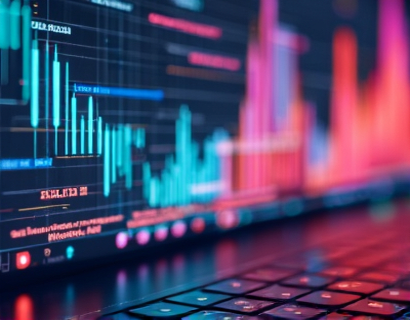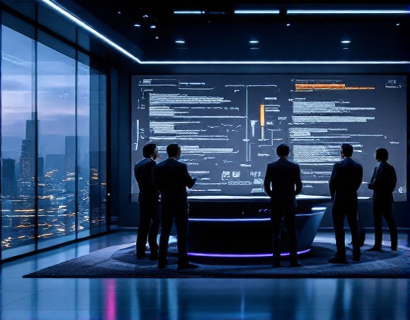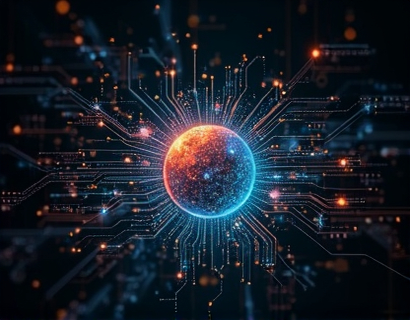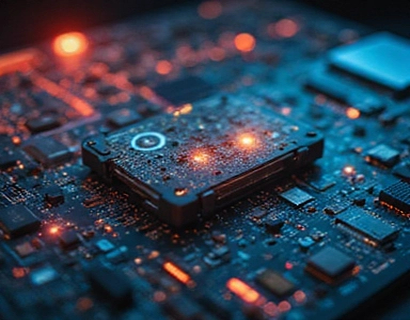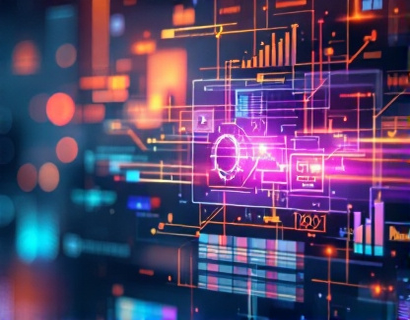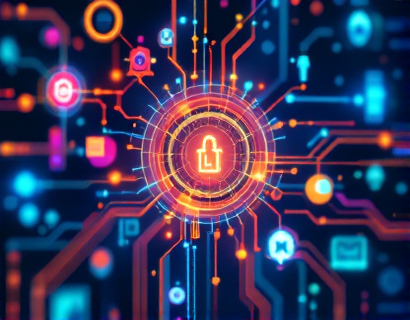The Synergy of AI and Crypto: Pioneering the Future of Digital Finance
The intersection of artificial intelligence and cryptocurrency is giving birth to a new era in digital finance, one that promises unparalleled efficiency, security, and innovation. This transformative synergy is not just a fleeting trend but a fundamental shift in how we perceive and interact with financial systems. As tech enthusiasts and innovators, understanding this convergence is crucial for navigating the future of finance.
Evolving Landscapes: AI in Cryptocurrency
Artificial intelligence has already made significant inroads into various sectors, and cryptocurrency is no exception. AI technologies, including machine learning, natural language processing, and predictive analytics, are being harnessed to enhance the functionality and security of blockchain-based currencies. One of the primary areas where AI is making a substantial impact is in trading and investment strategies.
AI-driven trading bots can analyze vast amounts of market data in real-time, identifying patterns and making predictions with a level of speed and accuracy that surpasses human capabilities. These bots can execute trades at optimal times, minimizing emotional biases and maximizing profit potential. For instance, machine learning algorithms can detect subtle market trends and adjust strategies accordingly, providing a competitive edge in the fast-paced crypto market.
Enhanced Security through AI
Security is a paramount concern in the crypto world, and AI is playing a pivotal role in fortifying defenses against cyber threats. Blockchain itself is inherently secure due to its decentralized and immutable nature, but the surrounding ecosystems, including exchanges and wallets, require robust security measures. AI-powered security solutions can detect and mitigate threats more effectively than traditional methods.
For example, anomaly detection systems use AI to monitor transactions and identify unusual patterns that may indicate fraudulent activity. These systems can respond in real-time, blocking suspicious transactions and alerting users. Additionally, AI can enhance the security of private keys and wallet addresses through advanced encryption techniques, ensuring that user assets remain safe from unauthorized access.
Smart Contracts and AI: A Powerful Combination
Smart contracts, self-executing contracts with the terms directly written into code, are a cornerstone of blockchain technology. When combined with AI, these contracts become even more powerful and versatile. AI can be integrated into smart contracts to automate complex decision-making processes, execute conditional logic, and adapt to changing conditions in real-time.
For instance, AI-enhanced smart contracts can dynamically adjust the terms of a transaction based on market conditions, ensuring that both parties benefit from the most favorable terms at any given time. This level of automation and adaptability not only streamlines processes but also reduces the need for intermediaries, lowering costs and increasing efficiency.
Use Cases in DeFi
Decentralized Finance (DeFi) is one of the most exciting areas where AI and cryptocurrency converge. DeFi platforms leverage blockchain to provide financial services such as lending, borrowing, and trading without traditional financial intermediaries. AI can enhance these services by providing more accurate risk assessments, personalized financial advice, and optimized portfolio management.
For example, AI-driven lending protocols can assess the creditworthiness of users based on a wide range of data points, including transaction history and behavior patterns. This allows for more inclusive and fair lending practices, opening up financial opportunities to a broader audience. Additionally, AI can help manage liquidity pools more effectively, ensuring that funds are allocated where they are most needed and yielding the best returns.
AI in Cryptocurrency Development
The development of new cryptocurrencies and blockchain projects is also being revolutionized by AI. Developers can use AI tools to design more efficient and secure blockchain architectures, optimize consensus mechanisms, and create innovative features that enhance user experience. AI can analyze existing blockchain projects to identify strengths and weaknesses, providing valuable insights for new project development.
Moreover, AI can assist in the creation of utility tokens by predicting market demand and optimizing token economics. By analyzing historical data and current market trends, AI can help developers design tokens that are more likely to succeed and gain traction in the market. This data-driven approach reduces the risk of launching unsuccessful projects and increases the chances of creating valuable digital assets.
Enhancing User Experience
Beyond backend processes, AI is also transforming the user experience in the crypto space. User interfaces for crypto exchanges, wallets, and other financial tools are becoming more intuitive and user-friendly thanks to AI-driven design and personalization. Natural language processing allows for seamless interaction through voice commands and chatbots, making it easier for users to navigate complex financial systems.
Personalization is another key area where AI shines. By analyzing user behavior and preferences, AI can tailor the user experience to individual needs, recommending relevant services, providing customized insights, and offering personalized support. This level of personalization not only enhances user satisfaction but also fosters greater engagement and loyalty.
Challenges and Considerations
While the integration of AI and cryptocurrency offers numerous benefits, it also presents several challenges that must be addressed. One of the primary concerns is the regulatory landscape. As AI and crypto continue to evolve, regulators are grappling with how to oversee these technologies to prevent misuse and ensure consumer protection. Compliance with regulations is crucial for any AI-powered crypto solution to gain widespread adoption.
Another challenge is the technical complexity involved in integrating AI with blockchain systems. Developing robust and scalable solutions requires expertise in both AI and blockchain technologies. There is also the issue of data privacy and security, as AI systems often rely on large datasets, some of which may contain sensitive information. Ensuring that data is handled ethically and securely is paramount.
Ethical Considerations
The ethical implications of AI in the crypto space cannot be overlooked. AI algorithms can inadvertently perpetuate biases if not properly designed and monitored. In the context of lending and credit assessments, for example, biased algorithms could lead to unfair treatment of certain groups. It is essential for developers and organizations to prioritize ethical AI practices, ensuring transparency, fairness, and accountability in their systems.
Additionally, the environmental impact of AI and blockchain technologies is a growing concern. The energy consumption associated with training AI models and maintaining blockchain networks can be substantial. Adopting more sustainable practices, such as using renewable energy sources and optimizing algorithms for energy efficiency, is necessary to mitigate these impacts.
Looking Ahead: The Future of AI and Crypto
The future of AI and cryptocurrency is bright, with numerous opportunities for innovation and growth. As technology continues to advance, we can expect even more sophisticated applications of AI in the crypto space. One area of potential development is the integration of AI with quantum computing, which could revolutionize the way we process and secure data on the blockchain.
Quantum computing has the potential to solve complex problems that are currently infeasible for classical computers, including certain cryptographic challenges. AI can play a crucial role in developing quantum-resistant algorithms, ensuring the long-term security of blockchain networks. This synergy could lead to more robust and future-proof financial systems.
Innovative Financial Products
AI and cryptocurrency are also paving the way for new financial products and services. For instance, AI-driven robo-advisors can provide personalized investment advice and portfolio management, making sophisticated financial strategies accessible to a wider audience. These robo-advisors can analyze market data, assess risk tolerance, and adjust investment strategies in real-time, offering a level of service that traditional advisors cannot match.
Another innovative application is the use of AI in creating decentralized autonomous organizations (DAOs). DAOs leverage blockchain to create self-governing entities where decisions are made through smart contracts and community voting. AI can enhance DAOs by providing data-driven insights, optimizing decision-making processes, and ensuring that the organization operates efficiently and transparently.
Conclusion
The convergence of AI and cryptocurrency is not just a technological advancement but a fundamental transformation of the financial landscape. This synergy is driving innovation, enhancing security, and creating new opportunities for users and developers alike. As tech enthusiasts and innovators, embracing this evolution is essential for staying ahead in the digital finance revolution. By understanding and leveraging the power of AI and cryptocurrency, we can shape a future where finance is more accessible, secure, and efficient for all.



